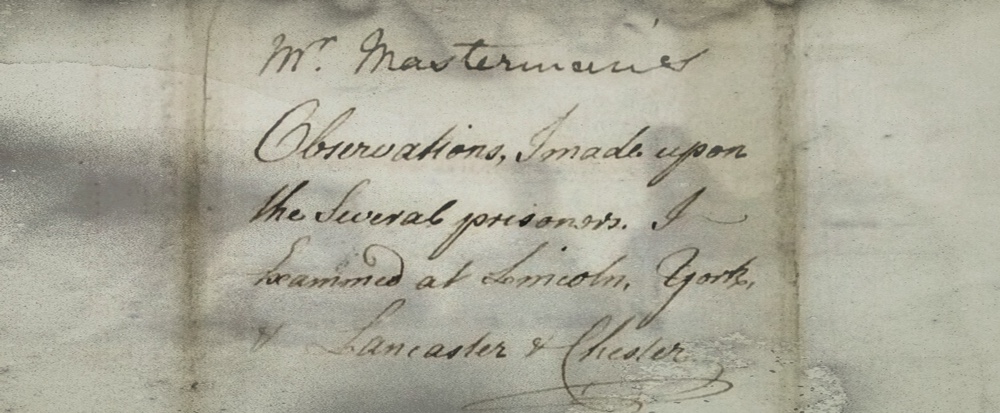Amidst the complexities of dynastic opposition and civil war during the later Jacobite era, the loyalties and material commitment of individuals were often in flux and have not always been so simple for historians to cleanly define. Allegations of significant Jacobite desertions have long been suspected (and more recently have been examined), but little scholarly enquiry has been made into cases of defection by soldiers within the government forces who were charged with quelling the Jacobite threat in Britain during the ’45.1 Resistance to martial service permeated both sides of the conflict, but deserting ranks to avoid combat is one thing, while joining up with the enemy is another entirely. Archival evidence shows us that soldiers in British service – including loyalist Highlanders on campaign in Scotland – deserted their units in smaller numbers than their Jacobite rivals, but incidents of soldiers breaking ranks was still a problematic issue for British army officers and Hanoverian officials.2 Digging deeper into the sources further reveals that some of these deserters found both cause and motivation to fight amidst the ranks of Jacobite rebels.
Tag: trials
In the spring of 1746 on a journey that lasted over two months, Henry Masterman and his clerk, Richard Wright, visited a number of jails in Lancaster, Chester, York, Lincoln, and London. There, these men interviewed Jacobite prisoners and took notes on their characters to assess their level of guilt and their willingness to testify against fellow inmates as witnesses for the Crown.1 Masterman was known for his experience with criminal prosecutions and for his great ‘fidelity’ to the government, borne out through his service in a similar capacity in the wake of the 1715 rising.2 Thirty years later he was once again asked to determine in what ways these suspects were involved in the Forty-five, including those who had ‘in any way fomented and encouraged it, as [well as] those who were actually in arms’.3 Masterman’s letters recount a tedious process fraught with the intransigence and dishonesty of many of the captives, in some places around half of which required a translator who could understand the language ‘universally Spoke in much ye greatest part of ye Highlands’.4
By the beginning of the new year in 1746, the British government once again found itself deeply mired in a civil war, as what would prove to be the final Jacobite challenge played itself out across Scotland and England, with France seemingly waiting in the wings. The Jacobite army had only recently recrossed the Scottish border after turning back at Derby, and just four months later its martial campaign would be ruthlessly crushed by British forces under William Augustus, the Duke of Cumberland, on Culloden Moor in the Highlands of Inverness-shire. Even in the midst of the crisis while both armies were still in the field, many hundreds of alleged Jacobite soldiers and civilians who were captured in the preceding months were already being examined and processed by agents within the Hanoverian government. After over half a century of dynastic and political contention that repeatedly manifested in clandestine plots and active Jacobite risings, these agents were sharply focused on creating a plan to punish treasonous activity that would ensure this was the very last time they would have use for one.5
To reinforce our recent discussion of critical thinking about the historical data used within a project like JDB1745, this week’s post illustrates an example of that application in action. While looking through some of the published trial records related to government prosecution of the Manchester regiment, team member Bill Runacre found a data conflict that took a bit of detective work to iron out. In the 1816 trial transcript of Captain James Bradshaw, published in Vol. XVIII of Howell’s (or Corbett’s) State Trials, amongst the witnesses who took the stand against the Manchester officer was one Henry Gibson, allegedly a soldier in Elcho’s Jacobite cavalry troop. Some character notes about Gibson are described within the transcript:
Henry Gibson was also produced and sworn, who said, That he himself was unfortunately seduced into the rebel army, and entered into lord Elcho’s troop of horse-guards; that the prisoner, Mr Bradshaw, marched with them as a private man in the said corps; that the troop was drawn up at the battle of Culloden, and that he there saw the prisoner on horseback in the said troop, with pistols, and a broad sword by his side, and a white cockade, and that he continued with the said troop till he was taken prisoner by his royal highness the duke of Cumberland’s army.1
Much of Gibson’s testimony against Bradshaw sounds quite similar to that of dozens of other witnesses brought in to inculpate suspected Jacobite prisoners in the years following the failure of the final rising. Pertinent details which the government found most helpful often included firsthand descriptions of the defendant’s presence within the Jacobite army and specific duties in that station, persons of repute with whom they were seen conversing, and the identification of clothing and arms that were worn during their tenure in Jacobite service. The collective depositions by Gibson and those of at least eight other witnesses were enough to condemn James Bradshaw, and he was thus found guilty and subsequently executed in London on 28 November 1746. As it turns out, however, Henry Gibson did not actually exist.
© 2026 Little Rebellions
Modified Hemingway theme by Anders Noren — Up ↑







